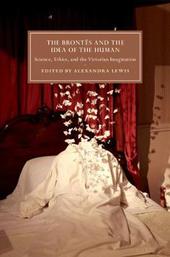
|
The Brontes and the Idea of the Human: Science, Ethics, and the Victorian Imagination
Hardback
Main Details
Description
What does it mean to be human? The Bronte novels and poetry are fascinated by what lies at the core - and limits - of the human. The Brontes and the Idea of the Human presents a significant re-evaluation of how Charlotte, Emily, and Anne Bronte each responded to scientific, legal, political, theological, literary, and cultural concerns in ways that redraw the boundaries of the human for the nineteenth century. Proposing innovative modes of approach for the twenty-first century, leading scholars shed light on the relationship between the role of the imagination and new definitions of the human subject. This important interdisciplinary study scrutinises the notion of the embodied human and moves beyond it to explore the force and potential of the mental and imaginative powers for constructions of selfhood, community, spirituality, degradation, cruelty, and ethical behaviour in the nineteenth century and its fictional worlds.
Author Biography
Alexandra Lewis is Senior Lecturer in English Literature, and Director of the Centre for the Novel, at the University of Aberdeen. She is editor of the Norton Critical Edition of Wuthering Heights (2014), and has published extensively on the Brontes, memory and trauma, and nineteenth-century literature and psychology.
Reviews'This collection of 13 essays offers interdisciplinary perspectives on the Bronte s, especially Charlotte ... The present volume's close readings of the Bronte s' novels lead to fresh insights ... Recommended.' S. A. Parker, Choice 'Alexandra Lewis's edited collection, The Brontes and the Idea of the Human: Science, Ethics, and the Victorian Imagination, expands this focus from the cultural to the universal.' Lydia Craig, British Association for Victorian Studies Newsletter
|